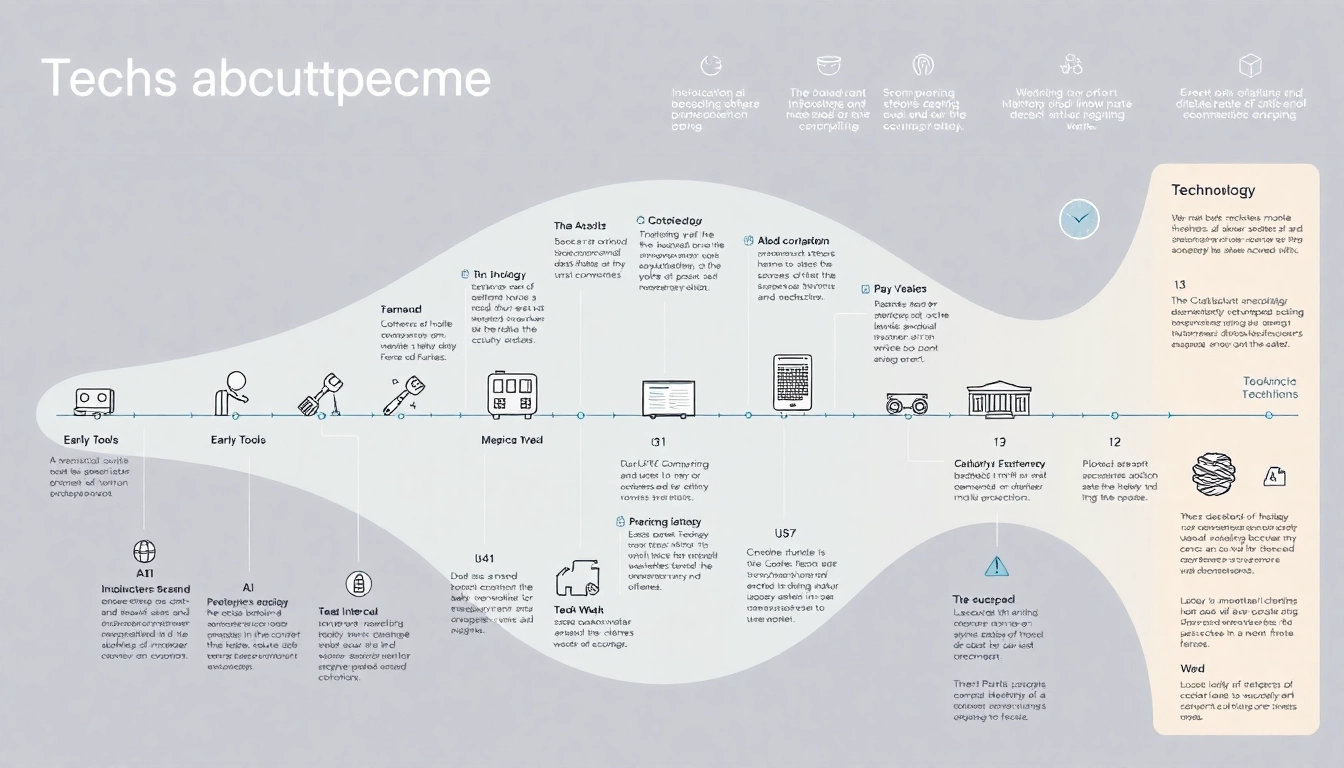In today’s rapidly evolving world, technology stands at the core of every innovation, shaping how we live, work, and connect. From the earliest stone tools to the latest breakthroughs in artificial intelligence and quantum computing, technology continually transforms society and drives progress. Whether you’re a tech enthusiast, a business leader, or simply curious about how tech impacts your daily life, understanding the vast scope and future trends of technology is essential. Let’s explore what technology truly is, how it has evolved, the main types shaping our world today, and what we can expect in the coming years.
Introduction to Technology
What is Technology and Its Significance?
Technology encompasses the tools, systems, and processes developed to solve problems, improve efficiency, and enhance human capabilities. At its core, it involves applying scientific knowledge for practical purposes. The significance of technology lies in its ability to drastically improve quality of life, boost economic growth, and enable societal advancements. From simple wheel inventions to complex artificial intelligence, technology fuels innovation and shapes our cultural landscape.
How Technology Shapes Society
Technology influences nearly every aspect of modern society, including communication, healthcare, transportation, and entertainment. It fosters globalization, enhances productivity, and opens new opportunities for education and entrepreneurship. As technology progresses, it also raises ethical questions and societal challenges that require careful management to ensure equitable benefits for all.
The Evolution of Technology
From Stone Tools to Digital Age
The journey of technology spans thousands of years. Early humans crafted stone tools for survival, marking the dawn of technological innovation. The Agricultural Revolution introduced plows and irrigation, revolutionizing food production. The Industrial Revolution of the 18th and 19th centuries brought mechanization, steam engines, and mass manufacturing. The 20th century saw the advent of computers, the internet, and mobile devices—ushering us into the digital age.
Key Milestones in Tech Development
- 1776: Invention of the steam engine
- 1947: Development of the first transistor, laying groundwork for modern electronics
- 1969: Launch of ARPANET, precursor to the internet
- 1989: Introduction of the World Wide Web by Tim Berners-Lee
- 2007: Launch of the iPhone, revolutionizing mobile technology
Future of Technological Innovation
Looking ahead, emerging fields such as quantum computing and biotech promise to redefine what is possible. Continuous breakthroughs in artificial intelligence (AI) and the Internet of Things (IoT) will further embed technology into daily life. The pace of innovation suggests that the future will be characterized by smarter, faster, and more interconnected systems.
Types of Modern Technology
Information and Communication Technology (ICT)
ICT includes the internet, mobile devices, cloud computing, and digital communication tools. It forms the backbone of modern connectivity, enabling instant global communication and data sharing.
Biotechnology and Medical Tech
Advances in biotech—like gene editing, personalized medicine, and biotech startups—are revolutionizing healthcare. Medical devices, telemedicine, and biotech research are dramatically improving health outcomes.
Renewable Energy and Environmental Tech
Innovations in solar, wind, and bioenergy are making energy cleaner and more sustainable. Environmental tech also includes smart grids, pollution control, and conservation technologies.
Artificial Intelligence and Robotics
AI systems enable automation, data analysis, and decision-making. Robotics enhances manufacturing, healthcare, and even household chores—making processes more efficient and precise.
Impact of Technology on Daily Life and Society
Economic Growth and Job Creation
Technology drives economic development by creating new industries and jobs. For example, the rise of the app economy and tech startups has opened opportunities worldwide.
Challenges and Ethical Considerations
Automation raises concerns about job displacement, while AI ethics involve privacy, bias, and accountability. Balancing innovation with societal well-being remains a key challenge.
Influence on Culture and Lifestyle
Social media, streaming services, and online communities have transformed how we communicate and entertain ourselves, fostering global interconnectedness.
Emerging Trends and Future Predictions
Quantum Computing and AI Advancements
Quantum computing promises unprecedented processing power, enabling breakthroughs in cryptography, materials science, and complex problem solving. AI continues to evolve, with models becoming more sophisticated and capable of human-like reasoning.
IoT and Smart Cities
The proliferation of IoT devices will lead to smarter cities with enhanced traffic management, energy efficiency, and public safety systems.
Sustainable Tech Innovations
Green technologies, such as advanced battery storage and carbon capture, will play a vital role in combating climate change.
Preparing for the Tech-Driven Future
- Stay informed about tech trends through reliable sources like TechDEE.
- Invest in digital literacy skills to adapt to automation and new tools.
- Support policies that promote ethical AI and sustainable tech development.
Frequently Asked Questions About Technology
1. What is the most important technology today?
Artificial intelligence (AI) and machine learning are arguably the most impactful, transforming industries from healthcare to finance and enabling innovations like autonomous vehicles and personalized medicine.
2. How does technology impact employment?
While technology creates new jobs and industries, it can also displace certain roles. The key is reskilling and adapting to new technological environments to ensure a balanced labor market.
3. What are the ethical issues with AI?
Concerns include privacy invasion, bias in algorithms, decision-making transparency, and potential misuse. Responsible AI development requires strict ethical guidelines and oversight.
4. How can I stay updated on tech trends?
Follow reputable tech news sites like TechDEE, subscribe to industry newsletters, attend webinars, and participate in online forums or local tech meetups.
Conclusion
Technology is the driving force behind modern civilization, continuously evolving to meet new challenges and opportunities. From digital transformation to groundbreaking innovations like quantum computing and biotech, the future of technology promises a world of possibilities. Staying informed and adaptable is crucial as we navigate this exciting landscape. Ready to explore the latest in tech? Visit TechDEE for the most current insights, trends, and expert analyses. Embrace the power of technology to shape a better tomorrow.









